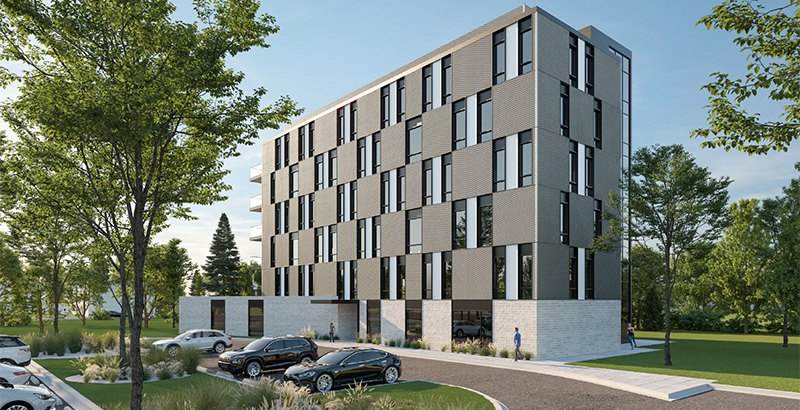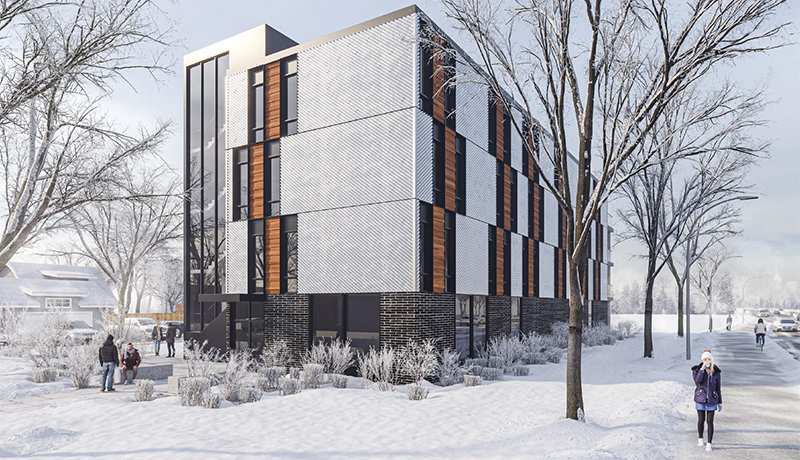In 12 months’ time, Edmonton will have 80 more long-term supportive housing spaces for people struggling with homelessness.

Mayor Don Iveson announced Tuesday how Edmonton would use the $17.3 million it was allocated in October from the federal government’s Rapid Housing Initiative.
“This money is going to build 80 new units of supportive housing in the neighbourhoods of King Edward Park and Wellington,” he said.
In order to speed up completion, address the “dire need” for housing and limit the construction disruption to the neighbourhoods, the city will build modular housing units off site.
“Community members who participated in engagement were informed about the conversion from a traditional build to modular when we shared the What We Heard reports with them in late November,” a city spokesperson told Global News in a statement.
“The buildings will be indistinguishable from traditional builds and residents of the building will receive the same support services as they would in any other supportive housing development.”
The homes are expected to be in place by the end of 2021, Iveson said. That’s a year ahead of schedule, according to the city.
“These will be supportive housing projects where folks will be able to stay as long as they need to to get settled,” he explained.

Get breaking National news
“It’s not just an apartment; it’s also a community and it’s a community with supports that meet people where they’re at, in terms of trauma and addictions and mental health.
“They are communities of healing, in my view, with supports embedded to make sure that folks are successful at staying housed and on their journey of recovery, whatever that looks like for each individual.”
Iveson said the two neighbourhoods were consulted and their concerns addressed.
“There’s often stigma and fear around these projects coming to a neighbourhood and that’s understandable for various reasons.
“So the city did quite a bit of public engagement to hear people’s fears and also provide people the facts of what well-run housing does.
“We hear that fear and we’ve heard that fear at city hall and it’s also one of the reasons why council has taken the step of saying we want to develop sites around the city as opposed to all concentrated in one neighbourhood,” the mayor said.
Iveson thanked the federal government for its support. He also thanked and praised agency partners for their hard work and evidence-based practices that “have shown tremendous benefits back to the all taxpayers through reducing people’s avoidable engagement with the health and justice system by meeting their needs with better housing as a preventative strategy.”
The mayor said Edmonton has already applied for the second stream of federal funding through the Rapid Housing Initiative to build 100 more units.
“We believe strongly in this model and look forward to delivering more of it.”
However, Iveson said making progress will take continued work and continued cooperation from all levels of government.
“This is just a start.”













Comments
Want to discuss? Please read our Commenting Policy first.